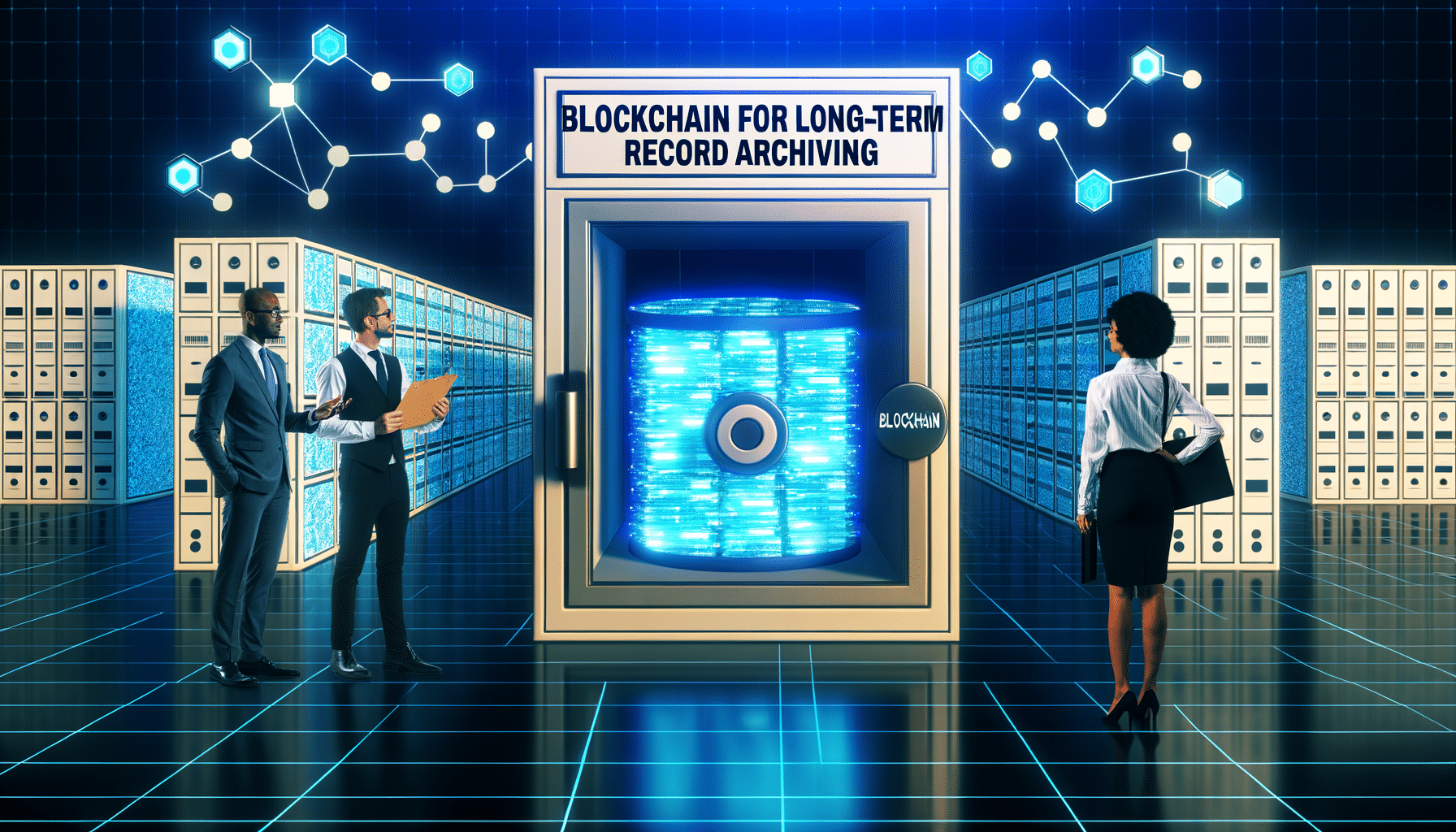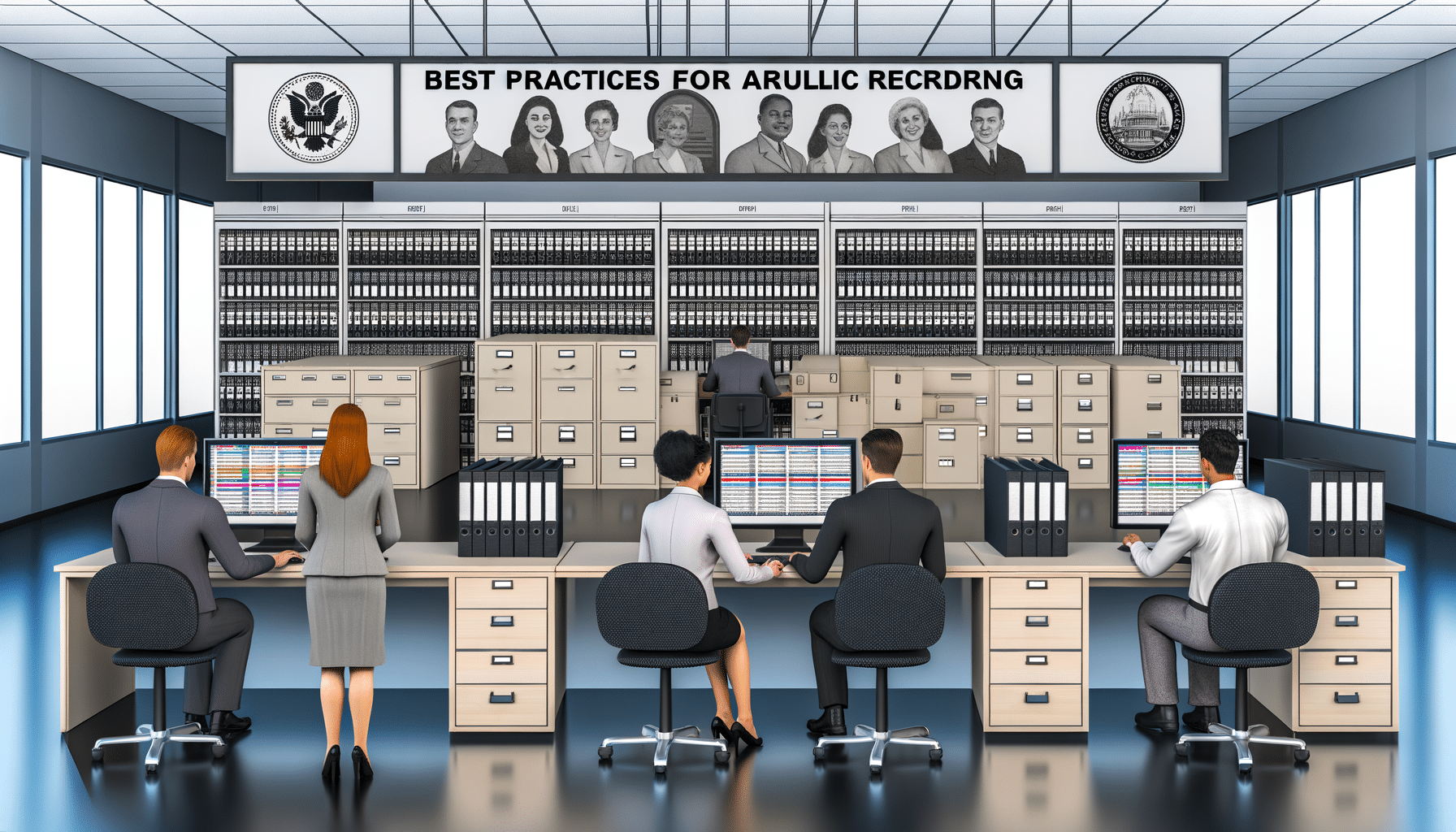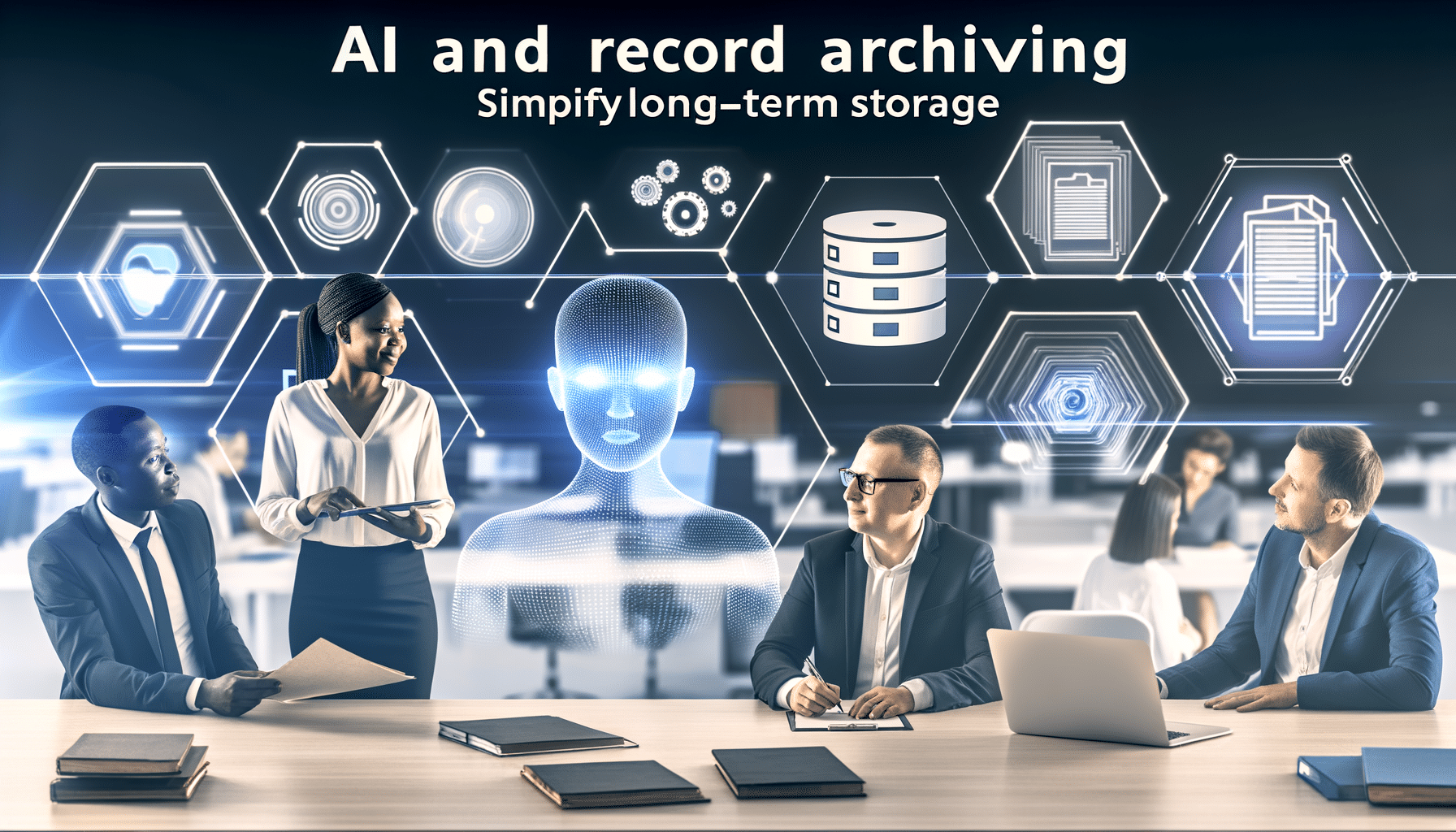- Archiving
- October 13, 2022
Blockchain for Long-Term Record Archiving

Revolutionizing Record Archiving: A Dive into Blockchain Technology
In today’s fast-paced digital world, the need for robust and secure record archiving has never been more critical. As organizations grapple with the exponential growth of information, the importance of efficient record maintenance becomes glaring. A few years ago, when I first delved into record management, it was apparent that traditional methods were insufficient in addressing modern-day challenges. This curiosity led me on a journey that culminated in the fusion of Blockchain technology with long-term record archiving solutions.
Why Blockchain?
Blockchain technology, often associated with cryptocurrencies, offers a lot more than just digital currencies. At its core, Blockchain is a decentralized ledger, designed to securely store information across multiple locations. For record archiving, this means that data is not only preserved but also stored in a manner that is immutable and tamper-proof. The precise architecture of Blockchain provides a transparent mechanism for ensuring data integrity — crucial for archiving purposes.
Immutable Records: The Game Changer
The very nature of record archiving — storing data for extended periods — demands a solution that ensures records remain unchanged over time. Here’s where Blockchain stands out. By storing data in blocks and encrypting these blocks using cryptographic signatures, Blockchain ensures data remains unchanged. Every time a new block is added, it carries a reference to the previous block, forming a “chain.” This makes unauthorized changes easily detectable and virtually impossible to alter without a synchronized consensus across the network.
Decentralization: The Key to Security
One primary feature of Blockchain that aids in secure record archiving is decentralization. In traditional systems, data storage occurs at a centralized location — exposing it to potential hacks or system failures. Decentralized storage, as offered by Blockchain, distributes data across numerous nodes. This not only enhances security but also guarantees record availability even if one or several nodes go offline. In essence, decentralization reduces single points of failure, making record archiving more reliable and robust.
Practical Applications in Record Archiving
The journey towards implementing Blockchain in record archiving has been filled with insightful lessons and practical applications:
1. Audit Trails with Blockchain
Blockchain offers unparalleled traceability, automatically creating detailed audit trails. Every transaction involving archived records is recorded, enabling organizations to trace who accessed the data, when it was accessed, and any changes made. This capability is particularly beneficial for industries needing to adhere to stringent regulatory frameworks.
2. Data Privacy and Compliance
With regulations such as GDPR and HIPAA enforcing strict data privacy standards, ensuring compliance is critical. Blockchain aids in automating compliance workflows, safeguarding sensitive information while granting access only to authorized personnel. This guarantees that organizations meet regulatory requirements seamlessly.
3. Cost-effective Long-term Storage
While setting up a Blockchain network might require an initial investment, its long-term cost benefits are undeniable. Traditional archiving methods often involve costly maintenance and potential data retrieval issues. Blockchain reduces these costs significantly by eliminating intermediaries and providing a seamless record storage and retrieval process.
Conclusion
As I reflect on this transformative journey, I’m genuinely excited about the incredible potential Blockchain offers for long-term record archiving. It addresses the perennial challenges of security, data integrity, and compliance while offering a cost-effective solution. For Legal, Finance, and Compliance heads, adopting Blockchain-based archiving solutions can redefine how records are stored and accessed.
In an era where data is gold, and its preservation is paramount, Blockchain isn’t just a technological advancement — it’s a necessity. As you navigate the intricate world of record archiving, I invite you to explore more about how RecordsKeeper.AI can be the partner you need for modernizing your record management strategy. For more insights and the latest on tech innovations in record management, stay connected and join me on this exciting journey.
Toshendra Sharma is the visionary founder and CEO of RecordsKeeper.AI, spearheading the fusion of AI and blockchain to redefine enterprise record management. With a groundbreaking approach to solving complex business challenges, Toshendra combines deep expertise in blockchain and artificial intelligence with an acute understanding of enterprise compliance and security needs.
Related Posts

Best Practices for Archiving Public Records in Government Departments
Learn best practices for securely archiving public records.
- April 29, 2024

AI and Record Archiving: Simplifying Long-Term Storage
Understand how AI streamlines the archiving of records for long-term storage and easy retrieval.
- May 18, 2023
Archives
- December 2024
- November 2024
- October 2024
- September 2024
- August 2024
- July 2024
- June 2024
- May 2024
- April 2024
- March 2024
- February 2024
- January 2024
- December 2023
- November 2023
- October 2023
- September 2023
- August 2023
- July 2023
- June 2023
- May 2023
- April 2023
- March 2023
- February 2023
- January 2023
- December 2022
- November 2022
- October 2022
- September 2022
- March 2019
Want to get more content like this?
Signup to directly get this type of content to your inbox!!
Latest Post
Organizing External Auditor Access
- December 22, 2024
Document Control in Manufacturing Plants
- December 21, 2024
Handling Rush Financial Report Requests
- December 20, 2024
Managing Record Access After Staff Changes
- December 19, 2024





